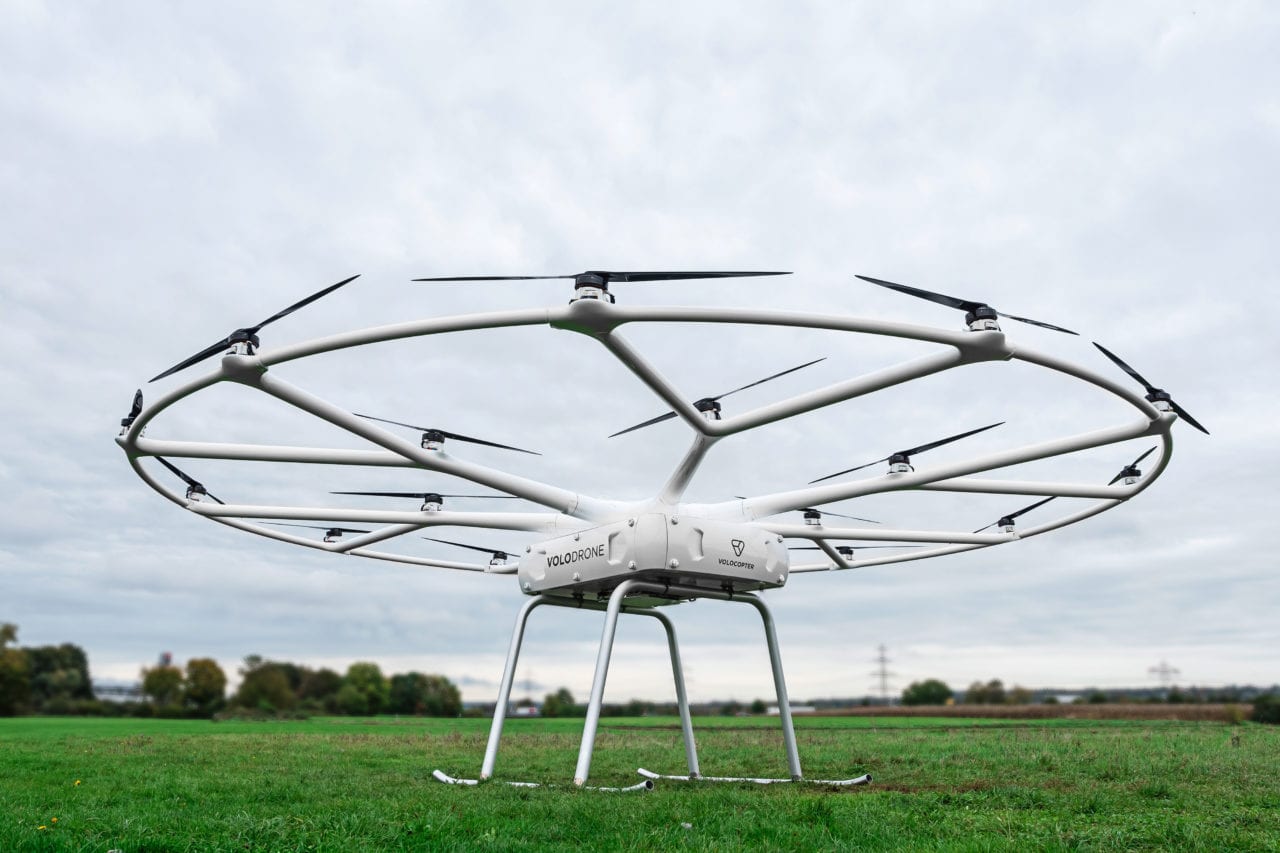
Volocopter unveiled its VoloDrone utility system, which can be remotely piloted or operated autonomously. Photo: Volocopter
It’s been a busy year for German air taxi developer Volocopter, which continues to be at the forefront of the urban air mobility race. The developer recently announced its VoloDrone, a utility version of its multicopter design, and unveiled a VoloPort concept in partnership with infrastructure company Skyports. Micron Ventures also led a $55 million Series C investment for the company.
The VoloDrone will carry a payload of 440 pounds up to 25 miles, according to the company, and can be either remotely piloted or “flown in automated mode on pre-set routes.” Cargo can be attached in a number of configurations in the space between its landing gear designed to serve a number of industries including agriculture, logistics and construction.

Various configurations for the VoloDrone. (Volocopter)
The first flight of the VoloDrone demonstrator took place this month and, according to Volocopter, it benefits from the flight testing performed on the Volocopter due to similarity of the 18-rotor multicopter platform, swappable lithium-ion batteries and flight control solutions.
“Our core business remains Urban Air Mobility and the transportation of passengers,” said Florian Reuter, CEO of Volocopter. “However, the technological platform of the Volocopter can bring outstanding value to a variety of additional applications.”
On the passenger transit side, in partnership with vertiport developer Skyports, Volocopter unveiled what it calls a “VoloPort” by the Float at Marina Bay, Singapore. The mockup will only be there for a few weeks, but the two companies hope to roll out certified versions of the takeoff and landing infrastructure at locations around Singapore within two to four years, connecting Volocopter routes to trains, airports, metro stations and micro-mobility options like bikes or scooters.
Skyports said its VoloPort design is modular, allowing it to be “adapted and potentially moved to different locations,” a company representative told Avionics International.

A mockup VoloPort by Skyports and Volocopter, temporarily viewable by the Marina Bay in Singapore. (Nikolay Kazakov)
“The problem with fixed infrastructure, like on the ground, is that it is very hard to change once in place, which is the problem we are aiming to solve with our modular design,” the representative said.
VoloPorts will be vehicle-agnostic to accommodate non-Volocopter aircraft as well, according to Skyports, with fast-charging infrastructure available to support battery swapping and recharging.
 | Don’t miss a beat on urban air mobility and eVTOL aircraft development. Sign up for our brand new e-letter, “The Skyport,” sent to inboxes every other Thursday with all the latest news, analysis and insider scoops. |